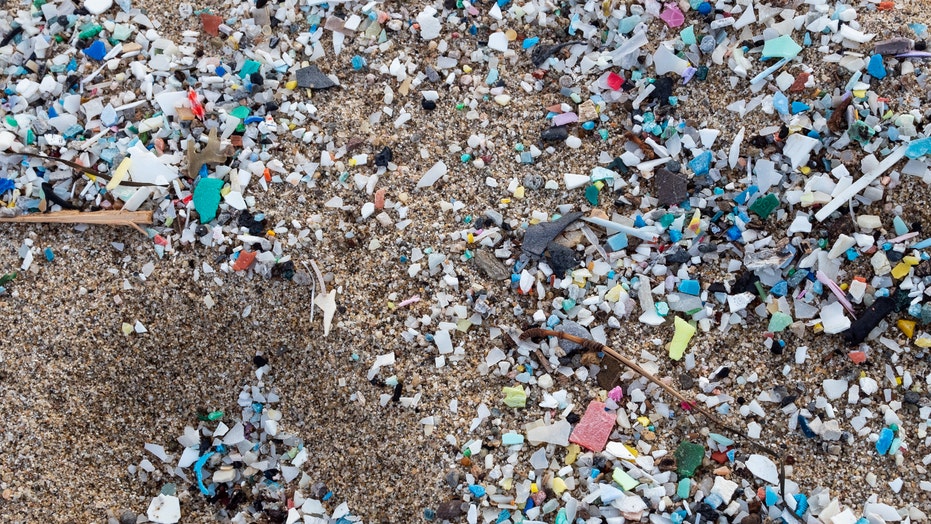Pictured above: Microplastics washed up on a beach after a severe storm prove the severity of plastic pollution.
Courtesy of Kinsley McEachern
By Brianna Madden
We all remember the paper and reusable straw craze from a few years ago.
If you took too long to finish your drink, your paper straw started to fall apart, and your metal straw just never seemed to be there when you needed it.
We can express how inconvenient these “improvements” are, but our environment cannot.
As we complain about flimsy paper straws, more than 1 million marine animals are killed from plastic debris every year. While we search for a metal straw, the Great Pacific Garbage Patch grows to 1.6 million square kilometers.
Reaching for another plastic straw means we are playing judge, jury and executioner to our world.
We have all seen the pictures of turtles choked by six-pack rings and jellyfish floating with plastic bags, but you don’t see pictures of filter feeders ingesting plastic, crab larvae living on microscopic pieces, or scientists trolling for plankton and finding more plastic under the microscope than phytoplankton.
These tiny particles are microplastics, and they’re becoming a leading concern for ocean habitats.
Microplastics are any plastic particle that is smaller than five millimeters. They can be cosmetic microbeads, fibrous materials or decomposed pieces of larger plastics.
They are just as deadly, if not more so, as that plastic straw you thought made it into the trash.
As plastics breakdown they release chemicals that imbalance ocean’s natural chemistry, such as polychlorinated biphenyls. PCBs can act as hormones and alter an organism on a molecular level, which typically includes a breakdown of the immune and reproductive systems.
Plastic takes lifetimes to fully decompose and microplastic particles are too small to filter out of an ecosystem without also removing microscopic organisms and sediment.
Due to its persistence, plastic remains in the food chain and is transferred from organism to organism.
USF and Eckerd College collaborated in 2019 to start the Microplastics in Tampa Bay Project. It is the first and only in-depth published research on the effect of microplastics in our waters.
Researchers estimated there are four billion particles of microplastic in the waters of Tampa Bay, while another three trillion reside in the sediments on the seafloor.
In every water sample taken from Tampa Bay, traces of microplastics were found. Over 75% of these microplastics are fibrous materials from clothes, nets and fishing lines.
However, figures are similar to those of other industrialized bay waters throughout the country, suggesting our waters are not deteriorating at a faster rate than expected, giving us more time to fix our mistakes.
Nonetheless, it’s hard to see a silver lining when about four particles of plastic are in every gallon of water, and 600 particles in every pound of sediment.
The leading government policy in the prevention of microplastics is the Microbead Free Waters Act of 2015, a federal regulation that banned the use of microbeads in the U.S. These small plastic pieces were often found in cosmetic products such as body wash and toothpaste.
As the issue inches closer to home, researchers and organizations encourage citizens to take action.
Small steps can make a big difference. Locals should consider participating in beach cleanups, reducing use of single-use plastics and recycling as much as possible.
Next time you’re in the Fitness Center use a reusable bottle instead of plastic and make sure to throw away your coffee cup in the Student Green Energy Fund’s blue recycling receptacles.
It’s also our job to hold powerful people accountable.
Support sustainable businesses, encourage producers to make goods more environment-friendly, stay updated on policy changes and use your voting power to make a difference.
Our oceans are degrading slowly over time, but one day there will be nothing left to save. If we don’t take steps now, if we don’t do our duty to our planet, then we will only have the memory of life in the ocean.
Brianna Madden is a marine biology freshman at USF St. Petersburg.



